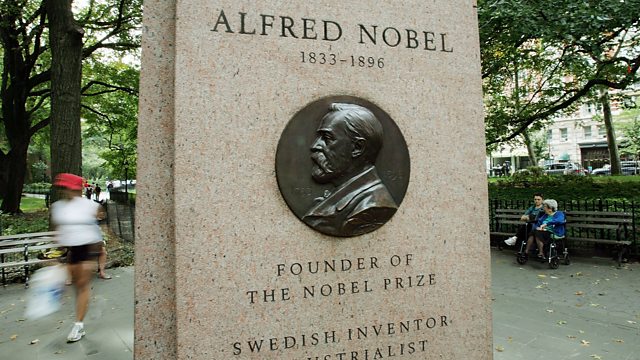Nobel Prize 2022: The science behind the winners
The Nobel Prize committee has unveiled its winners for 2022. We uncover the science behind this year鈥檚 award winners.
For the scientific community, the Nobel Prize announcements are an important part of the yearly science calendar. The award is one of the most widely celebrated and gives us a moment to reflect on some of the leading scientific work taking place around the world.
This year鈥檚 winners include Alain Aspect, John F. Clauser, and Anton Zeilinger for their work on quantum entanglement. Carolyn R. Bertozzi, Morten Meldal, and K. Barry Sharpless for their work on click chemistry. And Svante P盲盲bo for his work on sequencing Neanderthal DNA.
To understand the science behind the award winners better, we鈥檝e invited a variety of speakers to help us understand their work better. Award winner, Carolyn R. Bertozzi, Professor of Chemistry at Stanford, explains the basics behind click chemistry, a practice that has helped us to study molecules and their interactions in living things without interfering with natural biological processes.
Mateja Hajdinjak, Postdoctoral Training Fellow at the Max Planck Institute for Evolutionary Biology, celebrated alongside her former PhD. tutor, Svante Paabo in Germany this week. We talk to her about his significance in the development of DNA sequencing in ancient humans.
And Professor Shohini Ghose of the Institute of Quantum Computing at Waterloo University in Canada joins us to explain the complicated world of quantum entanglement.
Also this week, we meet Jessica Thompson, Assistant Professor of Anthropology at Yale University, who鈥檚 been considering how new parents manage the tricky job of childcare while out on fieldwork. She鈥檚 behind a new survey encouraging fellow scientists to consider how to approach the challenge of parental duties differently in the future.
Human sexuality comes in many forms, from exclusively heterosexual to exclusively homosexual. But seeing as homosexuality creates apparent reproductive and evolutionary disadvantages, listener Ahmed from Oslo wants to know: why are some people gay?
CrowdScience presenter Caroline Steel examines what science can - and can't - tell us about the role of nature, nurture and evolution in human sexual attraction. She asks a geneticist what we know of the oft-debated 'gay gene', as well as looking into why homosexual men on average have more older brothers than heterosexual men.
Caroline looks into the role of nurture with a developmental psychologist to answer a question from a CrowdScience listener from Myanmar. He wonders if the distant relationship he has with his own father has impacted his own feelings of attraction.
She also learns about research into a group of people in Samoa who may shed light on the benefits of traditionally non-reproductive relationships for communities as a whole.
(Photo: A monument to Nobel Prize founder Alfred Nobel. Credit: Mario Tama/Getty Images)
Last on
More episodes
Broadcasts
- Sat 8 Oct 2022 23:06GMT91热爆 World Service South Asia & East Asia only
- Sun 9 Oct 2022 00:06GMT91热爆 World Service except East Asia & South Asia
Podcast
-
![]()
Unexpected Elements
The news you know, the science you don't


